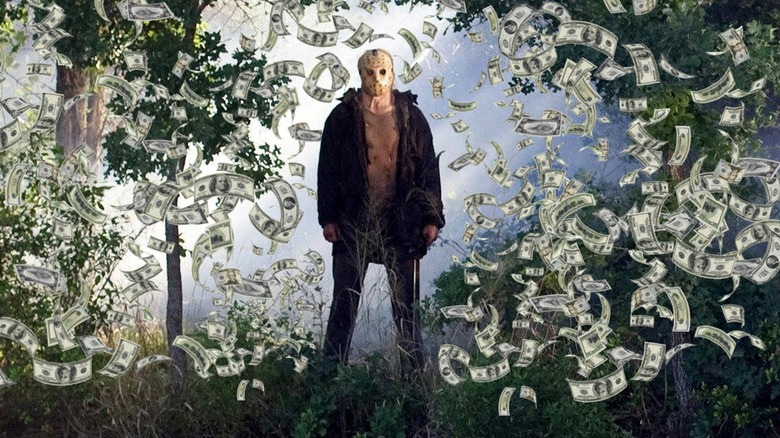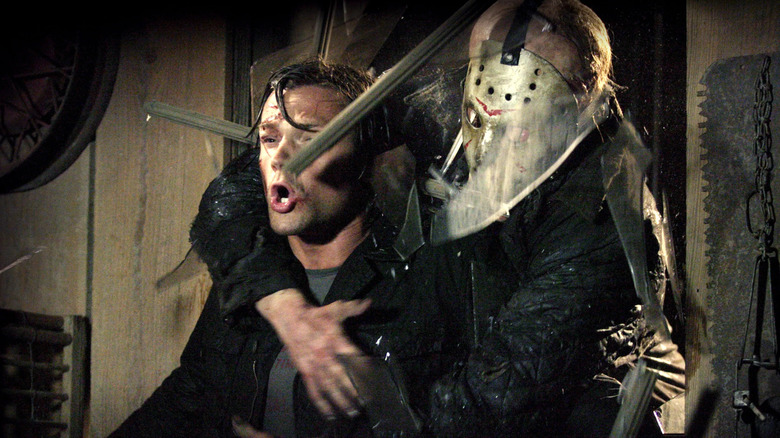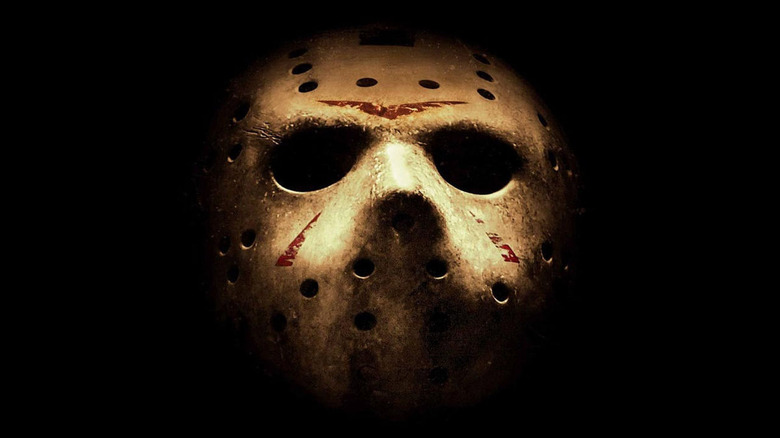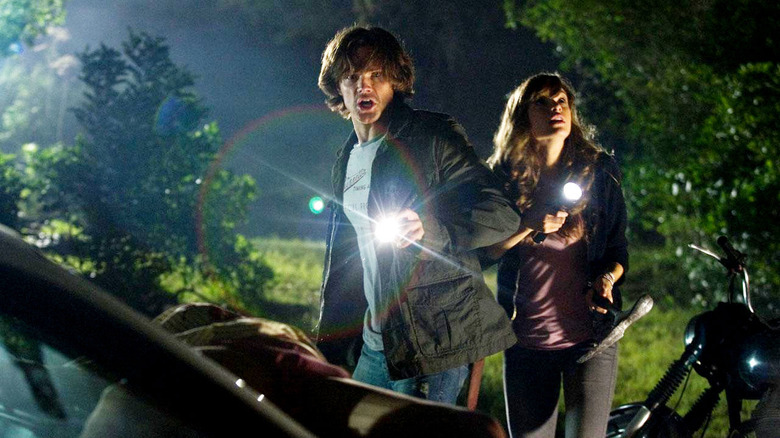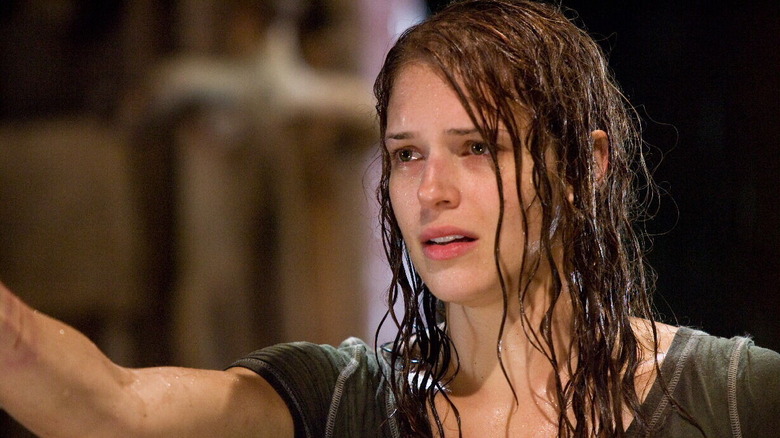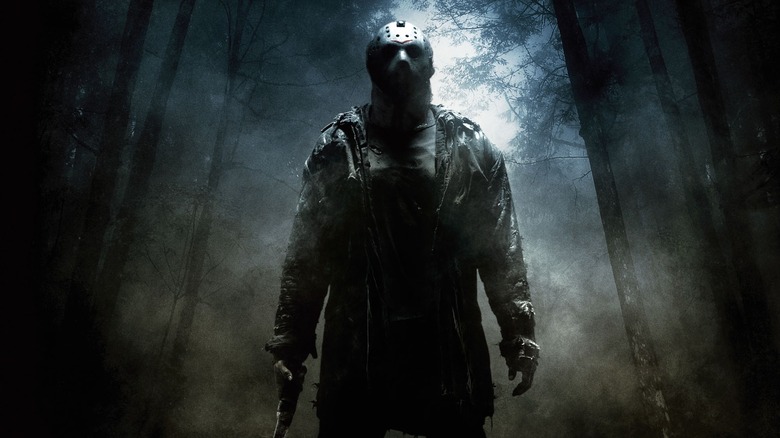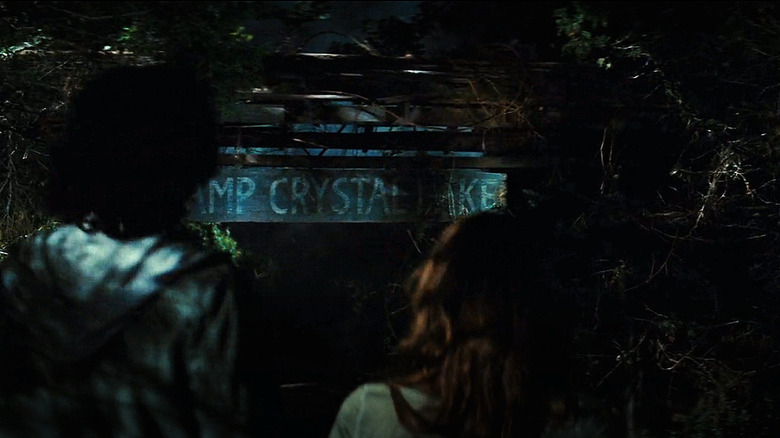Friday The 13th Conquered The Box Office 15 Years Ago – Then Jason Voorhees Vanished
(Welcome to Tales from the Box Office, our column that examines box office miracles, disasters, and everything in between, as well as what we can learn from them.)
If there is one unwritten rule of horror movies, it's that successful ones will get sequels. When they cease to be successful, there is a more than decent chance the franchise in question will be rebooted. This is the circle of life with genre movies in Hollywood. For "Friday the 13th" and its masked killer Jason Voorhees, the franchise had remained resilient for nearly three decades without ever being rebooted. But when that reboot came in 2009, it offered a new generation of horror fans a way to become acquainted with Mr. Voorhees.
2009's "Friday the 13th" came amid the early 2000s slasher remake craze and was arguably one of the more successful executions of the concept in that era. Despite the success, and despite the horror sequels rule that almost always proves true, no sequel ever materialized. What's more, despite yet another resurgence in the slasher genre in recent years, Jason has not graced the silver screen in 15 years, with the remake marking the last time the horror icon did his thing for the moviegoing public.
In this week's Tales from the Box Office, we're looking back at 2009's "Friday the 13th" in honor of its 15th anniversary. We'll go over how the film came to be, why this became the moment to reckon with Jason's messy on-screen history, what happened when the film opened, and more importantly, what happened in the aftermath of the record-breaking box office run. I also have new insight from interviewing the film's screenwriters, Damien Shannon and Mark Swift. Let's dig in, shall we?
The movie: Friday the 13th (2009)
In the early 2000s, classic slashers had something of a revival largely thanks to the success of 2003's "The Texas Chainsaw Massacre," which earned just shy of $108 million worldwide against a budget of less than $10 million. Those are returns that Hollywood will chase all day long. Michael Bay's production company Platinum Dunes then set about remaking several other horror classics as well to emulate that success, including "The Amityville Horror" and "A Nightmare on Elm Street."
Jason Voorhees, meanwhile, hadn't starred in a solo film since 2002's space-set "Jason X," which was a pretty major misfire (although birthed a cult following). More recently, he appeared in 2003's hit "Freddy vs. Jason," which earned $116 million worldwide in its day. While that movie never got a sequel, it certainly helped generate more interest in the hockey mask-wearing, machete-wielding killer of Camp Crystal Lake.
The rights to the franchise were/are a bit messy (more on that in a minute) but, ultimately, Warner Bros. and Paramount Pictures came together to get in on this slasher remake craze by co-producing a "Friday the 13th" remake. It marked the first time since the franchise debuted in 1980 that the continuity had been straight-up rebooted, which was no small thing. The studios once again turned to Shannon and Swift, who had penned "Freddy vs. Jason."
Their task this time? Condense several movies' worth of Voorhees history into one movie without having it feel like an overstuffed mess. While that was certainly a challenge, getting to jettison the messy continuity that had developed over the years had its benefits as well.
Not one remake but four remakes in one
Shannon and Swift said the decision to do a reboot was "undoubtedly" motivated by the success of other recent slasher remakes of the era, which included "House of Wax" and "Prom Night," among others. But for them, that path offered them a lot of freedom from a creative standpoint. As they told me:
"Personally, we were thrilled to be able to take another crack at Jason creatively. We were very excited to make him more human again, more of a feral animal who could still think. We thought we'd have plenty of time to build up to a more reanimated Jason, but alas the sequels never happened.
The screenwriting duo did, indeed, have plans for more and they even wrote a sequel that would have opened with a bloody wintertime scene a Camp Crystal Lake. Sadly, we'll never see that come to fruition but that sequel script came about because Shannon and Swift managed to condense an awful lot into a single movie, setting things up for a future that would never come.
They took elements of the first four "Friday the 13th" movies and remixed them into one film. From a two-minute black-and-white bit of exposition that essentially recaps the first movie to a 20-minute sequence that remixes "Part 2," they covered a lot of ground in very little time. Jason's mother Pamela was the killer in the first film and Jason doesn't even get his hockey mask until the third act of "Friday the 13th Part III." So doing a more straightforward remake of any single film wouldn't have been as welcoming to audiences who associated the franchise with a pretty specific version of Jason.
Marcus Nispel, who made "Texas Chainsaw" a big success, was chosen to direct the film with a cast that included fresh young faces such as Jared Padalecki ("Supernatural") and Danielle Panabaker ("The Flash"). The big, brooding Derek Mears was selected as our new Jason. The pieces were in place and the stage was set for Jason's big screen return.
The financial journey
Warner Bros. handled distribution of the film and, wisely, decided to release it in theaters on an actual Friday the 13th. That year, it also coincided with Valentine's Day, meaning the moviegoing public had a date with a murderous masked killer. It didn't particularly matter that reviews of the film were unkind at the time. Audiences were evidently ready for a new take on the slasher icon.
Opening against relatively weak competition in the form of "Confessions of a Shopaholic" and "The International," the "Friday the 13th" remake sailed to the top of the charts, taking in $40.5 million opening weekend. That number ballooned to $43.5 million accounting for the Monday President's Day. Against a reasonable $17 million budget, it was an instant hit, which is good because it came crashing down to Earth the following weekend.
The film dropped a staggering 80.4% in its second weekend, making it one of the most front-loaded hits in history. It fell to number six on the charts losing to "Madea Goes to Jail." By weekend number three, Jason was out of the top ten entirely. It didn't matter though, as the film finished its run with $65 million domestically to go with $26.5 million internationally for a grand total of $91.5 million worldwide. Jason Voorhees was back, baby.
"[Friday the 13th] had the biggest horror opening of all time, beating the previous record set by 'Freddy vs Jason,' which we also wrote," Shannon and Swift told me of the film's success. "That was surreal. We have framed trades announcements for both opening weekends hanging in our office, gifts from the producers and studios."
The perfect storm for an outsized opening
Some will point to that second weekend drop as a knock against the film. In the end, it's impossible to argue that the financial results were favorable but an 80% drop is noteworthy. Looking back, Shannon and Swift have a positive way of looking at that part of the movie's journey. As they told me:
"We honestly attribute that to how good the marketing campaign for the movie really was. Everyone who had any interest in seeing a new movie with Jason Voorhees saw it that first weekend. The hype started at [San Diego] Comic-Con with that extended first look, which fans went crazy for."
The marketing campaign at SDCC in 2008 did generate buzz. Beyond the marketing campaign though, it seems those involved were prepared for a fall from grace on weekend two. "It opened on Friday the 13th, which was also Valentine's Day Weekend. It was a perfect storm for an outsized opening," the duo said. "We all knew the second weekend would pale in comparison."
If there is one area that Shannon and Swift believe things could have been better, it's overseas. The film only made 29% of its money from international markets, which is an unusually small amount. As the screenwriters tell it, distribution was a major reason why Warner Bros. ended up merging with New Line in 2008. The feeling was that big hits could have been even bigger. The screenwriters explained:
"Where it should have done better was internationally. That's one of the reasons WB ultimately absorbed New Line. They felt their distribution could be better, and that even the hits were leaving a lot of money on the table."
Even if money was left on the table, a hit is a hit. Plans for a sequel were quickly hatched but the universe had other plans. Unfortunately, this was to be a one-and-done success story, as planned continuations of the franchise would stall out at every turn in the years that followed.
The unplanned retirement of Jason Voorhees
Warner Bros. originally dated a sequel for 2010, seemingly hoping to get a follow-up going sooner rather than later. Shannon and Swift were contracted to pen a sequel already, which made that a bit easier. But as they tell it, the intention wasn't to pull a rush job. "We made a deal to write the second one before the first one even came out," the duo said. "They didn't want to rush it, so they let us have all the time we wanted to write it, and everyone thought the script turned out great."
The full script has never made its way out into the world, only pieces of it here and there. At one point, Shannon and Swift shared a script page on Twitter that revealed the title to be "Friday the 13th: Camp Blood" with a very intriguing subtitle that read "The Death of Jason Voorhees." As for why the sequel fell apart? For one thing, WB and Paramount shared the rights, which made things tricky. As Shannon and Swift explained:
"Two studios were involved. People forget, 'Friday the 13th' 2009 was Paramount and New Line. Each had pieces of the rights at that time. Questions about budget, future profit spits, etc. slowed everything, and momentum is key in getting anything made. Then the clock ran out and they lost the rights."
Warner Bros. eventually traded the full rights to "Friday the 13th" to Paramount in 2013 in exchange for the rights to distribute Christopher Nolan's "Interstellar." But Paramount was roadblocked for years because the director of the original film Sean S. Cunningham and the screenwriter Victor Miller were locked in a messy legal battle that prevented anything from happening with the franchise.
Things have changed recently. Bryan Fuller is making a series titled "Crystal Lake" for Peacock, with the rights situation getting sorted out for that project. Still, no new movie has officially entered development, even if rumors have persisted. Jason, for the moment, remains dead.
The lessons contained within
As a huge fan of the franchise, the thing that stands out looking back is how this film — and franchise, really — exists as an outlier within the modern horror landscape. For years, "Friday the 13th" was an annual tradition because it was a money-making machine. Eventually, what was old became new again thanks to trends in the industry. That's how these things go. But as other slashers have once again had their day in the sun, Jason Voorhees has been left to languish on the sidelines blocked by, of all things, legal red tape.
The recent "Halloween" trilogy was an astonishing success, bringing in more than $480 million worldwide (even with "Halloween Kills" and "Halloween Ends" going to Peacock). We're even getting a new TV show set within the world of Michael Myers, and likely more movies. Other slashers have been given legacy sequels as well, including "Scream" and "Texas Chainsaw Massacre" (again), with lots of money to show for it. The time seems ripe for Jason to return once again. One would think the powers that be would have come together by now and set aside their differences in the interest of making money. Instead, we've had 15 years of nothingness from one of horror's most enduring slasher series.
What that has done is create a feverish demand within the horror community for new "Friday the 13th" stuff. The show is generating a lot of interest. I imagine a movie would cause even more excitement and, because it would feel so special now, it would probably do big business. There's something to be said for that. In an age where corporate balance sheets can't allow anything successful to die, "Friday the 13th" exists as a notable outlier.
